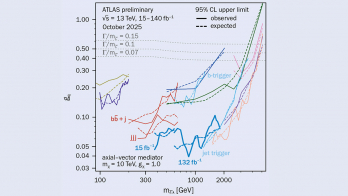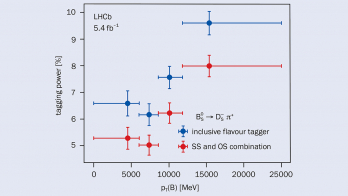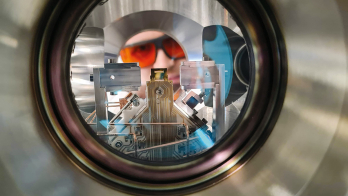
On 2–3 April CERN’s director-general, Rolf Heuer, officially launched the third phase of the CERN openlab at the 2009 annual meeting of the CERN openlab Board of Sponsors. During his introductory speech Heuer stressed the importance of collaborating with industry and building closer relationships with other key institutes, as well as the European Commission. The board meeting provided an opportunity for partner companies (HP, Intel, Oracle and Siemens), a contributor (EDS, an HP company) and CERN to present the key achievements obtained during openlab-II and the expectations for openlab-III.
Each phase of CERN openlab corresponds to a three-year period. In openlab-I (2003–2005) the focus was on the development of an advanced prototype called opencluster. CERN openlab-II (2006–2008) addressed a range of domains from platforms, databases and the Grid to security and networking, with HP, Intel and Oracle as partners and EDS, an HP company, as a contributor. Disseminating the expertise and knowledge has also been a key focus of openlab. Regular training sessions have taken place and activities include openlab contributions to the CERN School of Computing and the CERN openlab Summer Student Programme, with its specialized lectures.
With the start of the third phase of CERN openlab, new projects have already been initiated with the partners. These are structured into four Competence Centres (CC): Automation and Controls CC; Database CC; Networking CC; and Platform CC. Through the Automation and Controls CC, CERN, Siemens and ETM Professional Control (a subsidiary of Siemens) are collaborating on security, as well as the move of automation tools towards software engineering and handling of large environments. In partnership with Oracle, the Database CC focuses on items such as data distribution and replication, monitoring and infrastructure management, highly available database services and application design, as well as automatic failover and standby databases.
One focus of the Networking CC is a research project launched by CERN and HP ProCurve to understand the behaviour of large computer networks (with 10,000 nodes or more) in high-performance computing or large campus installations. Another activity involves the grid-monitoring and messaging projects carried out in collaboration with EDS, an HP company. The Platform CC project focuses on PC-based computing hardware and the related software. In collaboration with Intel it addresses important fields such as thermal optimization, application tuning and benchmarking. It also has a strong emphasis on teaching. During the third phase, the team will not only capitalize on and extend the successful work carried out in openlab-II, but it will also tackle crucial new areas. Additional team members have recently joined and the structure is now in place to collaborate and work on bringing these projects to fruition.
The openlab team consists of three complementary groups of people: the young engineers hired by CERN and funded by the partners (21 people over the past eight years); technical experts from partner companies involved in the openlab projects; and CERN management and technical experts working partly or fully on the joint activities. The people involved are not concentrated in a single group at CERN. They span many different units in the IT department, as well as the Industrial Controls and Electronics Group in the engineering department, since the arrival of Siemens as an openlab partner. The distributed team structure permits close collaboration with computing experts in the LHC experiments, as well as with engineers and scientists from the various openlab partners who contribute greatly to these activities. In addition, significant contributions are made by the students participating in the CERN openlab Summer Student Programme, both directly to the openlab activities and more widely to the Worldwide LHC Computing Grid, the Enabling Grids for E-sciencE project and other Grid- and CERN-related activities in the IT Department. Since the inception of openlab, more than 100 young computer scientists have participated in the programme, where they spend two months at CERN. This summer the programme will be welcoming 14 students of 11 different nationalities.
• The activities carried out from May 2008 to May 2009 are presented in the eighth CERN openlab annual report available from the CERN openlab web site at www.cern.ch/openlab.







